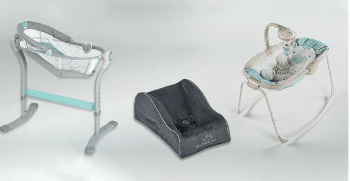
A study conducted for the U.S. Consumer Product Safety Commission has found that inclined baby sleepers are unsafe and the CPSC has called for taking the popular product entirely off the market. The action followed the reported deaths of at least 73 infants in inclined sleepers.
Fisher-Price last spring recalled 4.7 million sleepers followed two weeks later by the recall of 694,000 units by Kids II, which sold its sleepers under a variety of brand names. But now the commission says all inclined sleepers may cause asphyxiation.
If your baby died in an inclined sleeper, you may have grounds for a lawsuit. Kline & Specter has more than 50 attorneys, five of whom are also highly skilled medical doctors and two of those who are OB/GYNs. We have currently filed a dozen lawsuits and can promptly and expertly provide a free evaluation of your case.
The Washington Post has reported that Fisher-Price developed an inclined infant sleeper, first introduced in 2009, without prior clinical research into its safety and after consulting with only one doctor (a family physician who later lost his medical license).
Concern has arisen that sleepers with an incline of more than 10 degrees may cause a sleeping infant’s head to roll heavily forward or to the side, potentially blocking its airway and causing asphyxiation. News reports have put the reported death total as high as 73 nationwide since May 2019, noted Consumer Reports. (Read article)
The CPSC’s recommendation would affect all such sleepers and inclined infant hammocks with a tilt of more than 10 degrees. The previous recalls were for Fisher-Price’s Rock ‘n Play sleepers, the Rocking Sleeper made by Kids II and 24,000 Dorel sleepers as well as 71,000 inclined sleep inserts for Ultra-Lite play yards.
Inclined sleepers, which have a tilt of 10 to 30 degrees, were used by parents to try to reduce reflux and help their children sleep.
Renewed interest by the CPSC was spurred by the results of a study by an outside expert hired by the commission that found the design hazards for babies because the incline makes it easier for them to roll into unsafe face-down positions. The study monitored infants’ movements and their blood-oxygen levels.


